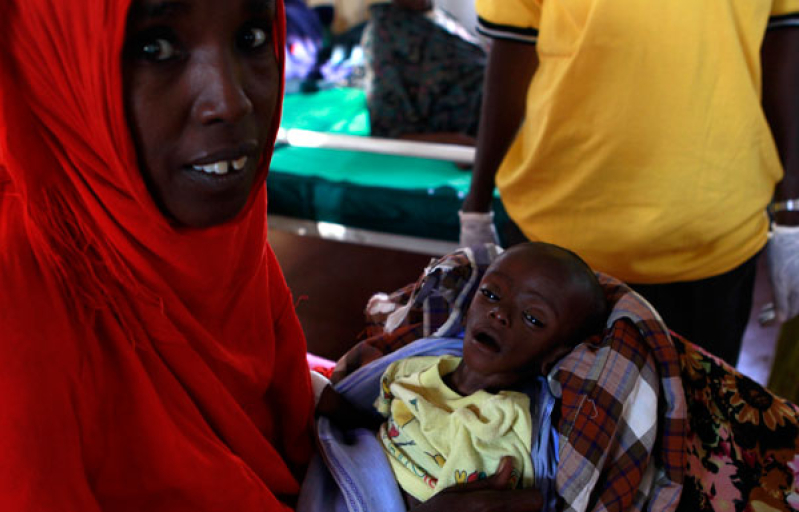
The drought and famine affecting some 12 million people in the Horn of Africa is being identified as the worst food security emergency in the world today. And yet agencies report that the crisis is worsening.
"The situation is getting worse," said UN Emergency Relief Coordinator Valerie Amos in a statement Friday. "If we are to avoid this crisis becoming an even bigger catastrophe, we must act now.”
According to the United Nations, the drought is the worst in 60 years and the emergency is expected to last for at least three to four months. Each day, thousands are fleeing the region to other parts of Africa to find relief and refuge.
The Office for the Coordination of Humanitarian Affairs reported that famine – which was declared in two areas of southern Somalia – could spread within one or two months without more aid.
The United Nations is appealing for $2.4 billion in aid, nearly half of which has been collected.
Non-profit organizations including World Vision and Church World Service have stepped in to help families that have been left to rely on food distribution programs after their crops failed and livestock died.
Deriko Nyekora, 31, has a 15-month-old son, Emuria, who is malnourished and unable to walk.
"I don't have enough food. The little food we get is not the required diet," the mother said, according to World Vision.
She has been receiving packages of Plumpy Nut from World Vision to feed her child.
"I pray to the Lord to give me good health, to protect my children, to give us enough food, and [to] continue providing us daily bread," she told the Christian non-profit group. "I pray continuously."
Sammy Matua of Church World Service stressed that humanitarian workers have to "up their game" in order to reverse the recurring famine crisis in Africa.
Matua cautioned, however, that food aid "should be provided in an empowering way, so that it does not continue a cycle of dependency."
In an appeal to Anglicans worldwide, Archbishop of Canterbury Dr. Rowan Williams lamented the images of famine that continue to haunt the world and called on the church members to respond in a way as to "not fail our fellow human beings in the Horn of Africa."
"Each of you must give as you have made up your mind, not reluctantly or under compulsion, for God loves a cheerful giver," Williams stated. "And God is able to provide you with every blessing in abundance, so that by always having enough of everything, you may share abundantly in every good work."






